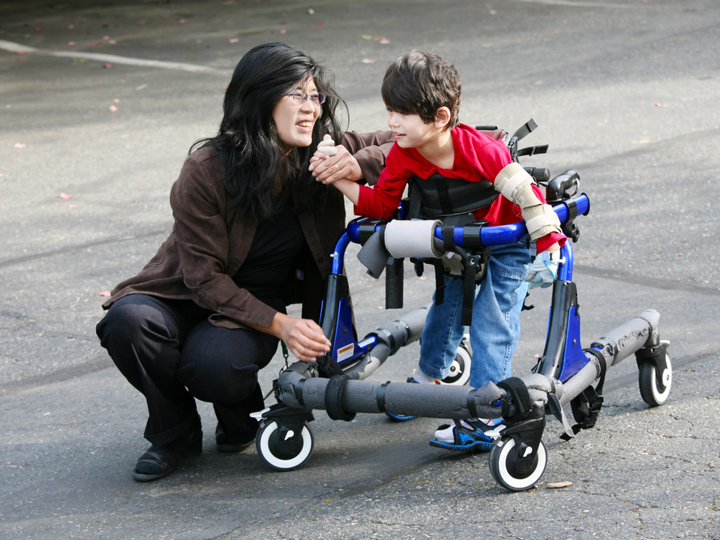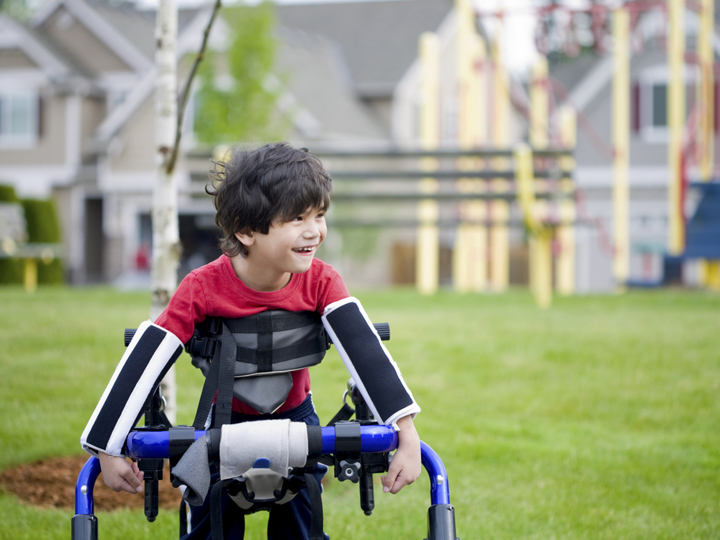Complex physical difficulties

A complex physical disability is a difficulty with physical movement and posture control for a range of reasons. It could be related to a genetic condition affecting their mobility, a problem with muscle development, or cerebral palsy.
Explore the topics on this page:
What are complex physical difficulties
Children with a complex physical disability often experience difficulty with learning, movement, posture control, sensory processing, feeding, hand control and vision. They may also have difficulty accessing social and physical opportunities at the same level as their peers, and often require additional support to participate fully.
Children often require support with equipment and aids in order for them to access learning in school, participating in family life at home and outside in the community.
What you can do to help
It is important that your child has plenty of opportunities to mix with their peers. Try to ensure they are as active as possible with an appropriate level of supervision.
How we can help
We assess children by looking at their holistic needs. Children are assessed by a multidisciplinary team along with the parent/carer, which comprises of a number of professionals including a:
- community paediatrician
- paediatric physiotherapist
- paediatric occupational therapist
We liaise with other professionals including education and other allied health professionals. Sometimes it may be appropriate for other professionals to be part of this assessment according to your child's needs. For example, a speech and language therapist.
Children are seen in a range of settings including school, hospital and community clinics.
Last reviewed: 1 November, 2023

